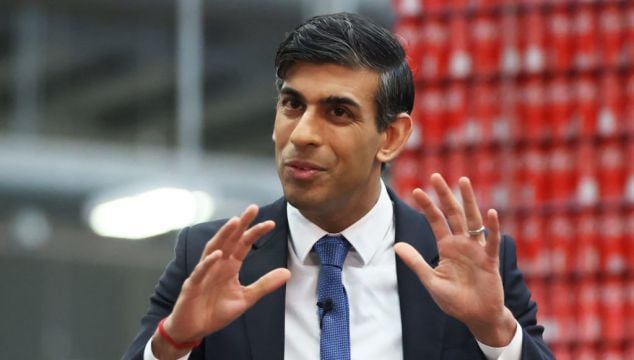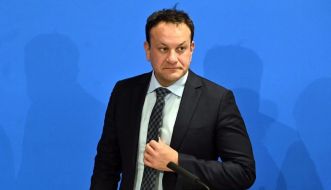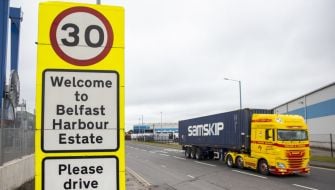A group of Brexit-backing Conservative MPs are set to announce their expert panel’s legal view on the new deal between the EU and UK ahead of a vote on the matter in the UK's House of Commons.
The European Research Group (ERG) of Tory Brexiteers commissioned a so-called “star chamber” of lawyers to consider the Windsor Framework before it decides how to vote on Wednesday.
The counsel of lawyers is expected to unveil its findings on Tuesday.
It comes a day ahead of the Commons vote on the so-called 'Stormont brake' element of the accord.
Reports have suggested that the view of the ERG’s legal squad, led by veteran Eurosceptic MP Bill Cash, will be that the brake is unusable in practice and the deal does not go far enough.

James Duddridge, a Tory former trade minister, told the Daily Telegraph he would “absolutely vote against” the new deal that he is said to have labelled a “betrayal of Brexit”.
“It breaks Northern Ireland off from the United Kingdom and sets up a new regulatory environment around the European Union,” he told the newspaper.
“It’s just not acceptable and, to be frank, I don’t know how they thought it ever could be.”
The DUP has already said it will vote against the framework this week.
The Windsor Framework is designed to ease trade frictions and Unionists fears associated with the Northern Ireland Protocol, which was part of former British prime minister Boris Johnson’s Brexit deal.
The protocol was drawn-up to prevent a hard Border in Ireland by allowing EU single market rules to continue to apply in Northern Ireland.

The result was that regulatory and customs checks moved to the Irish Sea, creating economic barriers on the movement of goods between Britain and Northern Ireland.
As part of a deal aimed at cutting red tape created by the treaty, the Stormont brake is designed to give Belfast greater autonomy over the rules that apply to the North.
The brake would allow a minority of elected Stormont members to formally flag concerns about the imposition of new EU laws in Northern Ireland – a move that could see the UK government veto their introduction there.
British prime minister Rishi Sunak's end goal with the framework is to restore powersharing in Belfast.
The DUP, the largest Unionist party in the Northern Ireland Assembly, is currently blocking devolution at Stormont in protest at the terms of the protocol.
Dublin, London, Brussels and Washington are keen for the Stormont institutions to be restored ahead of next month’s landmark 25th anniversary of the Good Friday Agreement.

US president Joe Biden is among those set to visit Northern Ireland next month to mark the deal that established powersharing in Belfast.
DUP leader Jeffrey Donaldson has said there is “a lot more work to be done” on the accord, with the party pointing out the brake would not apply to EU rules already being followed by Belfast.
But he has not definitively ruled out the prospect of his party rejecting the framework in Westminster but still returning to devolution at Stormont.
The first Commons vote on Wednesday on the EU-UK agreement will be on the secondary legislation that would give effect to the Stormont brake.

While the vote only concerns one aspect of the accord, Downing Street has suggested the vote will be indicative of support for the overall agreement.
Even in the face of DUP opposition and a potential Tory rebellion, Mr Sunak is expected to comfortably win the division due to Labour backing the pact.
No 10 has pushed back against calls from the DUP to renegotiate the framework but has said ministers stand ready to hold further consultations with the Unionist outfit before Wednesday’s vote.







